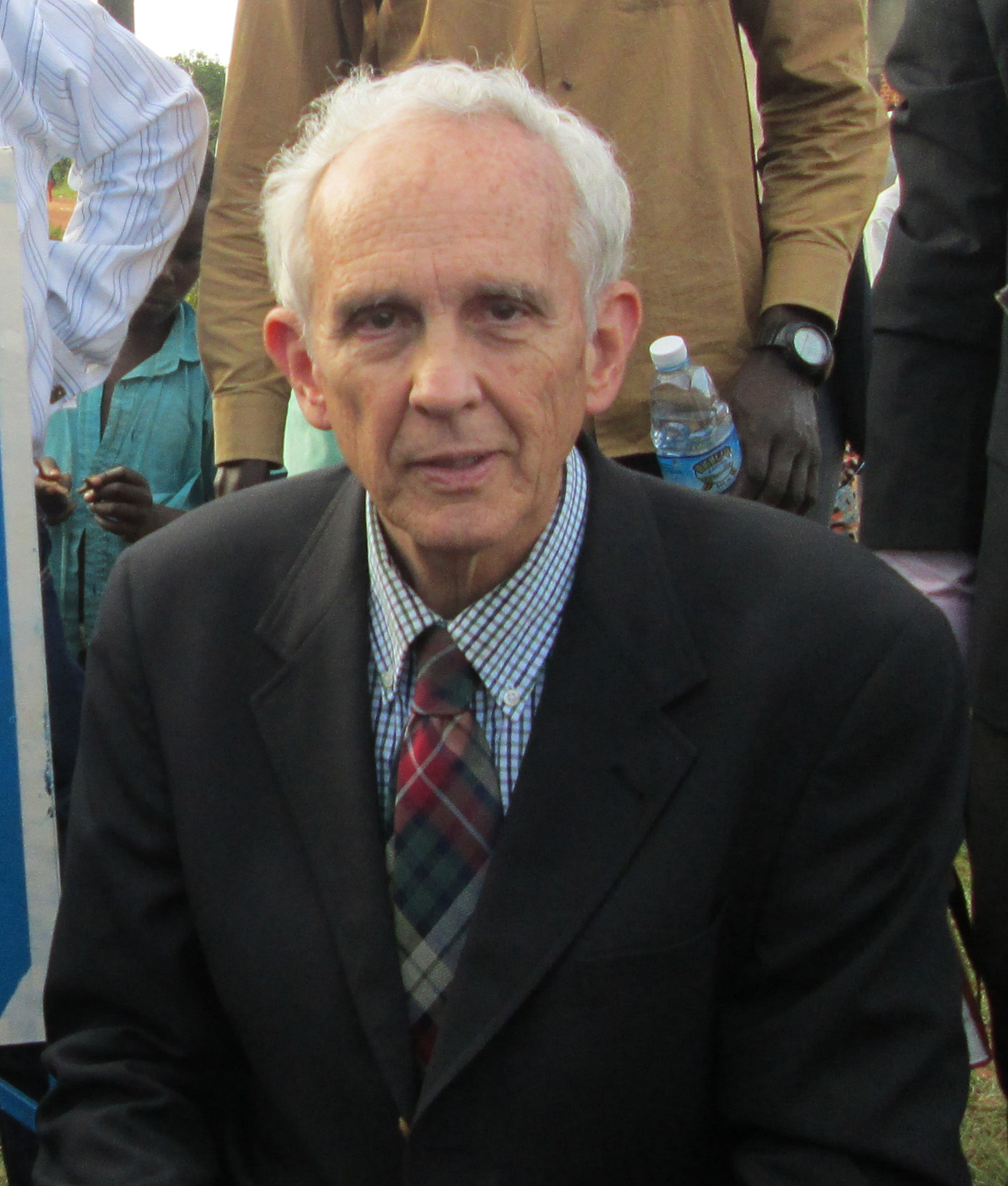by Dr. Gregory Bartha
August 9, 2017
Considerable progress has been made in the Cross Clinic over the past year. The two blocks of the outpatient department have been completed and now house the examination room, the pharmacy, the lab, the ultrasound scanner, administrative office and delivery room. We are temporarily using two rooms as medical wards while we work on finishing the final hospital block, which will contain wards for women, children and men. One of the rooms is designed for counseling, family planning, HIV and mental health problems. We do have a lack of beds – some patients have to lie on the floor on mats while receiving treatment.
This spring and summer simple surgical procedures were done in the clinic. A surgeon came up from Kampala and worked with a recent medical school graduate and the operating room assistant. The main problems addressed were hernias, hydroceles, hemorrhoids and skin growths. A total of about 45 surgeries were performed, including two hysterectomies. These procedures were performed at a reduced cost – 70-80 U.S. dollars. But, of course, most patients could not even afford this, and the clinic provided financial assistance.
The maternity services have been greatly expanded and improved. About 50 babies are being born each month at the clinic. We are partnering with Baylor Uganda and the Ugandan government in a voucher program. Village health workers go out in the community and identify poor pregnant women. For about one dollar, each one is given a voucher which enables the person to receive prenatal services, medication and delivery in a nearby hospital at no charge. The goal is to encourage women to deliver in a health facility and to reduce maternal and child mortality. The program then reimburses the hospital for the services provided. The clinic has two well-trained midwives who perform deliveries. Family planning is heavily stressed in the prenatal visits and after delivery.
The clinic has worked very hard to improve the quality of care in this maternity program – good hygiene practices and proper waste disposal have been implemented. We have a good delivery bed, and autoclave for sterilization, all necessary delivery equipment and a deep pit which has been dug for placenta disposal. HIV testing is done on all mothers and medication started if any test positive. In this way, the risk of transmission of the virus to the child is greatly reduced.
Electricity has been very erratic at the hospital – it is frequently off more than half the time. Nurses have had to use flashlights at night while they are treating the patients. Solar panels have been installed and power is more reliable. We have also gotten Wi-Fi and an Internet connection at the clinic. The next project is to pipe water into the hospital. This will require a solar pump and overhead water storage.
We have up to 20 inpatients a day in the clinic/hospital. The main problems are babies with malaria, pregnant women with malaria, people suffering from severe peptic ulcer disease, severe skin infections, pneumonia, older patients with heart failure, stroke and cirrhosis of the liver. Hepatitis B is present in a large percentage of people in my area. We are seeing more complex patients. I think word is circulating that treatment which is not available in most government hospitals can be obtained at our facility – or at least the referral to specialty hospitals can be done. Recently, we have seen a young man paralyzed below the waist from a fall causing spinal cord injury, hydrocephalus and spina bifida, clubfoot deformities, osteomyelitis, developmental delay in children, large goiters, cancer of the breast and cervix, tuberculosis of the spine, chronic diarrhea and postpartum hemorrhage and infection.
We refer patients for x-rays, blood tests, consultation with orthopedists, eye specialists, gynecologists and even CT scans. We provide funds for transport to these facilities and assist patients with their medical bills. Prices for orthopedic surgery are in the $500 range and the same for prostate surgery. People with cancer are referred to the cancer treatment center in Kampala. Many have eye problems related to trauma, infection or cataracts, and there is a good eye clinic in Mbale. Finally, many women have gynecologic problems including heavy bleeding, chronic pelvic pain and sexually transmitted diseases. We continue to provide medical outreach services each month. The Karamoja outreach is scheduled monthly, and we usually have a second one to an underserved area which has requested help. Frequently, we work out in the open under trees, and the patients line up. Musculoskeletal pain, vomiting and diarrhea, respiratory infections and malaria are the most commonly encountered problems. We have had several student volunteers from the US at the clinic so far this year. One was newly graduated from nursing school, one was a medical student, and one is studying public health. All were most enthusiastic about their time at the clinic and hope to return at some point in the future. They particularly enjoyed their contact with children.
The clinic has initiated regular continuing medical education programs. Some of the topics covered have been pneumonia, sickle cell diseases, hypertension, heart failure and postpartum bleeding.
So it is clear the clinic is involved in many activities. The goal is to continue to improve the facility and the services provided to the people.






Recent Comments